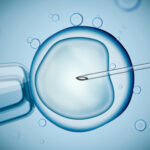
The Urgent Need for Accessible IVF
十一月 5, 2024
Implications for International Families and Reproductive Rights in Italy
十一月 5, 2024A recent study presented at the American Society for Reproductive Medicine’s annual meeting reveals new insights into the experiences and perspectives of oocyte (egg) donors in the U.S. Unlike traditional assumptions of anonymity, most donors now feel positive about their donation and are increasingly open to the possibility of future contact with children born from their donations.
The survey, led by Sarah Holley, PhD, from the University of California San Francisco, involved 234 egg donors who had completed at least one donation cycle. An overwhelming 88.3% reported feeling “happy/proud/good” about their donation, highlighting a sustained positive outlook. This is significant as the focus in reproductive care has traditionally been on intended parents and donor-conceived children, with far less attention given to the long-term experiences of donors.
One finding from the study was the donors’ curiosity about the potential children resulting from their donations. Nearly 74% of respondents were curious about these children, and while only 10.3% reported frequent thoughts on the matter, 46.8% expressed a desire to meet them. Furthermore, 62.2% of donors indicated they would allow the clinic to release their identity to the child upon reaching adulthood. This willingness to connect seems to showcase a shift in donor attitudes and a new era of transparency in reproductive services.
Despite the growing openness, some concerns remain. While most donors did not feel their donation impacted their health, 23.6% expressed some concerns about potential long-term effects on their health and fertility. Dr. Holley pointed out that these concerns highlight a need for more research on the long-term psychosocial impacts of egg donation to better prepare and support donors, both at the time of donation and afterward.
Rachel Weinerman, MD, a reproductive endocrinologist at Case Western Reserve University, notes that the concept of anonymity is becoming obsolete, especially with advancements in DNA testing. Weinerman advises potential donors to recognize that anonymity may no longer be feasible in an era where genetic information is more accessible than ever. This acknowledgment has prompted many clinics to adopt terms like “de-identified donor,” reflecting a more realistic view of privacy in modern reproductive medicine.
As donor perspectives evolve, so does the landscape of egg donation. With more donors open to future contact and transparency, the field of reproductive medicine continues to adapt to the changing expectations of donors, intended parents, and donor-conceived individuals. This study highlights the importance of informed consent, comprehensive counseling, and ongoing support for donors as they navigate their unique roles in family-building.
Are you considering egg donation? As part of our egg donation services, we draft comprehensive contracts between intended parents and egg donors and provide individualized support to all clients, counseling them as to their contractual rights and obligations. Contact us today to learn more!




